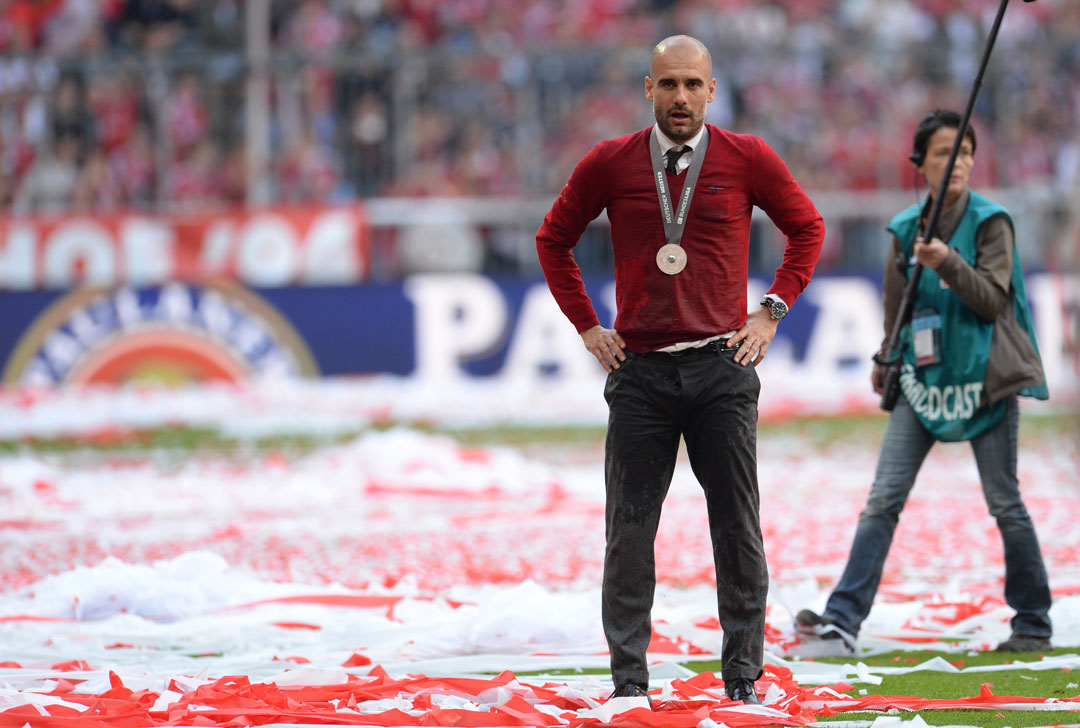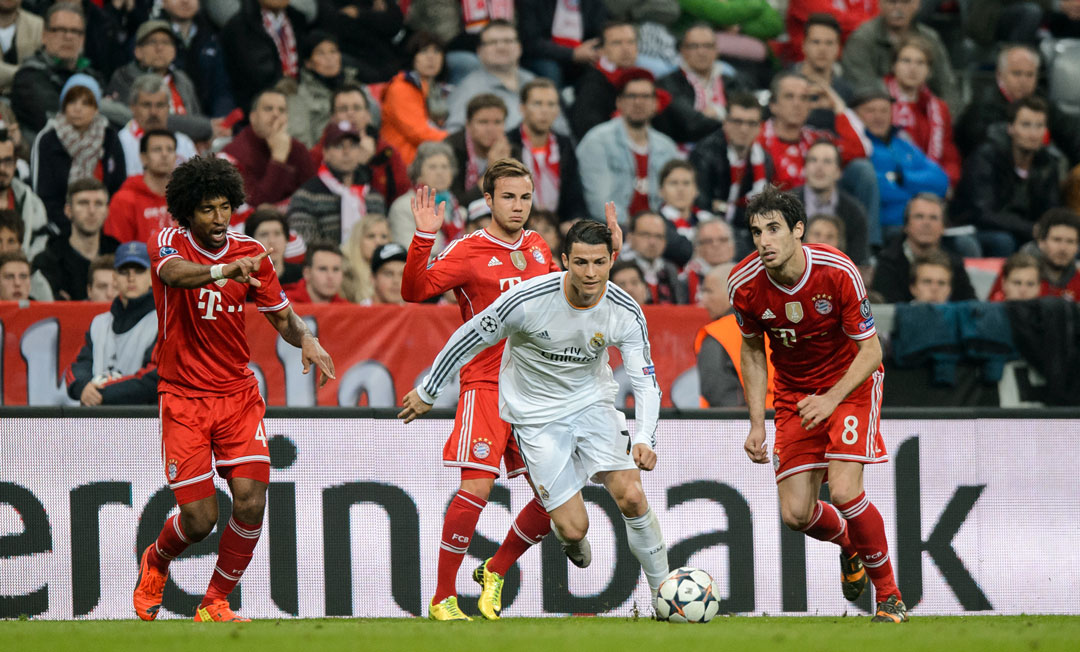German Cup final will determine success of Guardiola's year one at Bayern
Lucas Swain looks at why the German Cup final is now hugely significant for Pep Guardiola as he seeks acceptance in his first year at Bayern Munich...

In January 2013, Bayern Munich announced who would be taking the lead role at the Bavarian giants following the expiry of Jupp Heynckes’ contract. The news broke 24 hours after Markus Horwick, Bayern’s media director, described rumours of the club’s approach for Pep Guardiola as “complete rubbish”.
Guardiola had achieved elite status after his time at Barcelona. The Catalan had the choice of any club in the world and he chose Bayern. The job needed a perfectionist, as the task was to maintain perfection and achieve the unprecedented. Bayern were expected to retain the Bundesliga, so Guardiola’s first season was to be judged on his side’s continental performance: could Bayern become the first side to retain Europe's biggest prize since its early-90s redesign as the Champions League?
The Catalan gaffer set about imposing his philosophy, the one that became polished and refined after years of groundwork at Barcelona. But the transition hasn’t been as smooth as Guardiola would have hoped, as the recent crushing Champions League exit against Real Madrid documented.
The team Heynckes created at Bayern was balanced; it could attack ferociously, play heavy on transitions, maintain possession and defend well. The latter can’t be said for Guardiola’s side. It seemed as if he’d inherited the perfect team, but the shakeup he’s initiated has been detrimental in certain areas of the squad.
Defensive stability lacking
Dante was heralded as a key figure in Bayern Munich's side last season. The 30-year-old's solid partnership with Jerome Boateng helped spur Bayern to become the all-conquering side they were. The Brazilian's impressive performances were also rewarded with a series of appearances for the national team. However, this season has seen Bayern become more defensively vulnerable and both Boateng and Dante have been affected.
Guardiola’s philosophy involves the whole team in ball rotation when in possession; the full-backs often slot into central positions and the centre-backs play an invitingly high line. With Javi Martinez discarded as a defensive midfielder by Guardiola, the solitary layer of defence is Bayern’s possession and it’s not stable enough.

The signs for Bayern had been slowly revealing themselves as the season progressed. Alterations had to be made. The first came when Guardiola switched from 4-1-4-1 to a more Bayern-like 4-2-3-1. The intense pace and attacking mentality of the Bundesliga forced Guardiola to adapt - the singular pivot showed signs of weakness and was exploited when Manchester City visited the Allianz Arena.
Under both the 4-1-4-1 and 4-2-3-1 Bayern did win big matches. They always will. The trouble was these convincing results disguised the warning shots Manchester City had fired - and led to a downturn in domestic form after retaining the Bundesliga, which quickly translated into underwhelming performances against Manchester United.
Real Madrid brought a whole new challenge to Munich. Bayern’s mountains of possession proved worthless without penetration and Guardiola’s side played into the dangerously capable hands of Carlo Ancelotti's counter-attackers. Karim Benzema, Gareth Bale and Cristano Ronaldo were able to run riot, as Bayern start to become the very system they so notably dismantled in last year’s semi-final. Possession football is neither dead nor useless, but Bayern must find a balance. This squad is not capable of producing the masterpiece Guardiola conducted at Barcelona; he must adhere to his own words: "I need to adjust to the players, not the other way around."
Get FourFourTwo Newsletter
The best features, fun and footballing quizzes, straight to your inbox every week.
DFB Pokal final - an important yardstick for Pep
The DFB Pokal final now represents an important marker for evaluating Guardiola’s performance this season. There are currently lots of question marks over Guardiola’s philosophy - it doesn’t retain the ‘Bayern way’ and notable personalities have spoken out at different intervals of the season. Sporting director Matthias Sammer has labelled the squad “too nice” and “lethargic”, where honorary president Franz Beckenbauer has exclaimed “we will end up like Barça; nobody will want to watch us”.
The opposition for the final, Borussia Dortmund, proved too great for Bayern when the clubs last met. Jürgen Klopp guided his team to a comfortable 3-0 win at the Allianz Arena which gave Guardiola his heaviest league defeat in management - albeit with a vastly understrength Bayern team.
For Bayern to win the final, Guardiola must start to learn, and give at least a modicum of consideration for the defence. Two of Dortmund’s goals in the most recent match-up stemmed from counter-attacks and that will happen again if Bayern play so dangerously high up the pitch. Bayern could collect a record 17th DFB Pokal, but doubts are creeping in: Beckenbauer wrote in his column for Bild that Borussia Dortmund have a “60:40” chance heading into the final, and Oliver Kahn spoke of Bayern’s chances at a sponsor event after their poor Bundesliga performances: "after shutting down the engine, it is hard to throw it back on and go at full speed again, from my experience."
This final now has the utmost importance in Bayern’s season despite an already impressive recent haul of trophies. Victory in Berlin will be more than just another Bayern trophy, it will be symbolic, displaying that despite contrasting form and criticism of Guardiola, Bayern are still on top of Dortmund and will be for some time to come.
